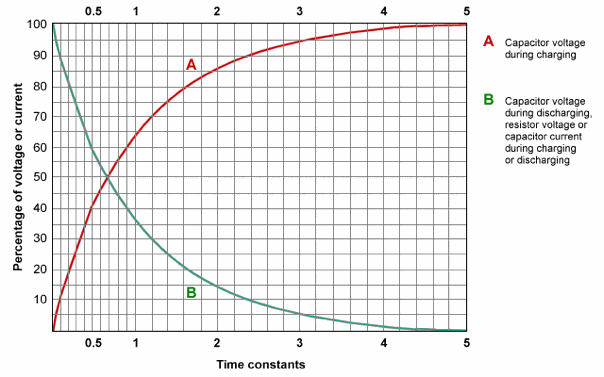Here's my situation. I'm planning to use a servo (like the ones used in RC models) to rotate a chunk of lead between two positions: 0º and 180º. Since I'll probably be powering the servo from a wall outlet (and a voltage regulator), it's important for this application that I have a way of automatically returning it to 0º position should the power fail.
Apparently the most common way to do this is with a spring, but there's the issue that the servo will be using power to fight the spring even when not moving. I found out that capacitors can be used for this: the capacitor charges when everything is working, and if the power fails the capacitor can power the servo long enough for it to return to 0º.
This is very strange. The servo pulls around \$1A\$ of current and takes around one second to do the half-turn, which implies that the capacitor would have to store around \$1C\$ of charge. This would mean either extremely high capacity or extremely high voltage.
And yet it seems that this is a thing that exists and is used for even bigger motors than mine. Can capacitors really provide that much current for that much time? Or am I not understanding something?

